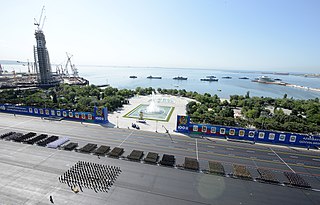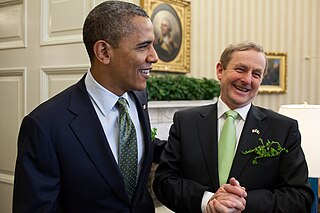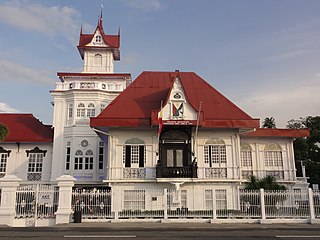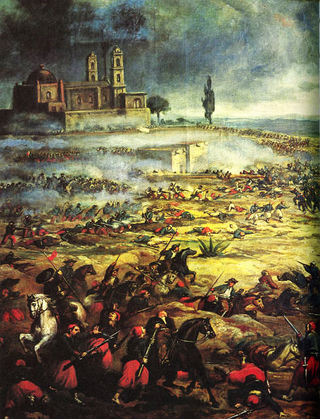
Bastille Day is the common name given in English-speaking countries to the national day of France, which is celebrated on 14 July each year. In French, it is formally called the Fête nationale française ; legally it is known as le 14 juillet.

May is the fifth month of the year in the Julian and Gregorian calendars and is the third of seven months to have a length of 31 days.

Juneteenth is a federal holiday in the United States commemorating the emancipation of enslaved African Americans. Deriving its name from combining "June" and "nineteenth", it is celebrated on the anniversary of the order, issued by Major General Gordon Granger on June 19, 1865, proclaiming freedom for slaves in Texas. Originating in Galveston, Juneteenth has since been observed annually in various parts of the United States, often broadly celebrating African-American culture. The day was first recognized as a federal holiday in 2021, when President Joe Biden signed the Juneteenth National Independence Day Act into law after the efforts of Lula Briggs Galloway, Opal Lee, and others.

In the United States, Flag Day is celebrated on June 14. It commemorates the adoption of the flag of the United States on June 14, 1777, by resolution of the Second Continental Congress. The Flag Resolution, passed on June 14, 1777, stated: "Resolved, That the flag of the thirteen United States be thirteen stripes, alternate red and white; that the union be thirteen stars, white in a blue field, representing a new constellation."

Victory Day is a holiday that commemorates the Soviet victory over Nazi Germany in 1945. It was first inaugurated in the 16 republics of the Soviet Union following the signing of the German Instrument of Surrender late in the evening on 8 May 1945. The Soviet government announced the victory early on 9 May after the signing ceremony in Berlin. Although the official inauguration occurred in 1945, the holiday became a non-labor day only in 1965, and only in certain Soviet republics.

Constitution Day is the national day of Norway and is an official public holiday observed on 17 May each year. Among Norwegians, the day is referred to as Syttende mai, Nasjonaldagen, or Grunnlovsdagen, although the latter is less frequent.

Many nations around the world observe some kind of Armed Forces Day to honor their military forces. This day is not to be confused with Veterans Day or Memorial Day.

Independence Day is a federal holiday in the United States commemorating the Declaration of Independence, which was ratified by the Second Continental Congress on July 4, 1776, establishing the United States of America.

Emancipation Day is observed in many former European colonies in the Caribbean and areas of the United States on various dates to commemorate the emancipation of slaves of African descent.

Portugal Day, officially Day of Portugal, Camões, and the Portuguese Communities, is the National Day of Portugal celebrated annually on 10 June. It is one of the public holidays in Portugal and celebrated by Portuguese people throughout the world. It commemorates the death on 10 June 1580 of Luís de Camões, a poet and national literary icon.
National Hispanic Heritage Month is annually celebrated from September 15 to October 15 in the United States for recognizing the contributions and influence of Hispanic Americans to the history, culture, and achievements for the United States.

Irish–American Heritage Month is celebrated by proclamation of the President and Congress in the United States to honor the achievements and contributions of Irish immigrants and their descendants living in the United States. It was first celebrated in 1991. The heritage month is in March to coincide with Saint Patrick's Day, the Irish national holiday on March 17. Heritage Months are usually proclaimed by nations to celebrate centuries of contributions by a group to a country.

Independence Day is an annual national holiday in the Philippines observed on June 12, commemorating the declaration of Philippine independence from Spain in 1898.

The Dominican Day Parade in New York City is a parade organized by Americans of Dominican origin. The event started in 1982 as a local celebration with concerts and cultural events in the Washington Heights section of Manhattan. Organized by Dominican American community leaders, the parade is held annually each August on 6th Avenue. Similar parades are also held every year in Haverstraw, New York, Paterson, New Jersey, Boston, Lawrence, Massachusetts, Philadelphia and along the Grand Concourse in the Bronx.

Cinco de Mayo is a yearly celebration held on May 5 to celebrate Mexico's victory over the Second French Empire at the Battle of Puebla in 1862, led by General Ignacio Zaragoza. Zaragoza died months after the battle from an illness, and a larger French force ultimately defeated the Mexican army at the Second Battle of Puebla and occupied Mexico City. However, following the end of the American Civil War in 1865, the United States began lending money and guns to the Mexican liberals, pushing France and Mexican Conservatives to the edge of defeat. At the opening of the French chambers in January 1866, Napoleon III announced that he would withdraw French troops from Mexico. In reply to a French request for American neutrality, the American secretary of state William H. Seward replied that French withdrawal from Mexico should be unconditional.

Independence Day of Ukraine is the main state holiday in modern Ukraine, celebrated on 24 August in commemoration of the Declaration of Independence of 1991.

Saint Patrick's Day, although a legal holiday only in Savannah, Georgia, and Suffolk County, Massachusetts, is nonetheless widely recognized and celebrated throughout the United States. It is primarily celebrated as a recognition of Irish and Irish American culture; celebrations include prominent displays of the color green, eating and drinking, religious observances, and numerous parades. The holiday has been celebrated in what is now the U.S since 1601.

The Independence Day of Armenia is the main state holiday in Armenia. This date is celebrated on September 21.

Haitian Flag Day is a Haitian holiday to celebrate the creation of the Flag of Haiti during the Haitian revolution. The day is celebrated each year on 18 May, which is the anniversary of the date of the flag's adoption in 1803. The day is observed in numerous cities of the US that have a large Haitian population.
Disability Pride Month occurs in the United States every July to commemorate the passing of the landmark Americans with Disabilities Act (ADA) in July 1990. The celebration has been officially recognized by New York City mayor Bill de Blasio and San Francisco mayor London Breed. Disability Pride is also celebrated worldwide, including in the United Kingdom, South Africa, and other countries during various times of the year. Disability Pride Parades are parades held annually to celebrate the month in Chicago, Los Angeles, New York, San Francisco, San Antonio, Philadelphia, and Pittsburgh among others.

















